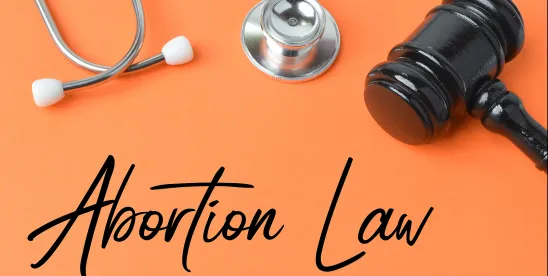On May 21, 2025, a federal judge for the U.S. District Court for the Western District of Louisiana vacated a portion of the Biden-era U.S. Equal Employment Opportunity Commission (EEOC) implementing the Pregnant Workers Fairness Act (PWFA) to require employers to reasonably accommodate employees who choose to have an abortion.
Quick Hits
- The U.S. District Court for the Western District of Louisiana vacated the EEOC’s final rule interpreting the PWFA to require elective abortion-related accommodations and removing abortion from the definition of a pregnancy-related medical condition.
- The ruling tracks a prior preliminary injunction ruling that found the EEOC exceeded its authority and evidence of congressional intent for the PWFA to apply to elective abortion lacking.
U.S. District Judge David Joseph, a Trump appointee, found that the EEOC exceeded its statutory authority by including the “abortion accommodation mandate” in the April 2024 final rule and violated the “major questions doctrine,” which requires clear congressional authorization for agency actions of significant economic and political importance.
The court granted summary judgment in favor of the plaintiffs, vacating the “abortion accommodation mandate” and sent the rule back to the EEOC to revise it and any implementing regulations or guidance, accordingly.
“[T]he record before the Court clearly establishes that the EEOC has exceeded its statutory authority to implement the PWFA and, in doing so, both unlawfully expropriated the authority of Congress and encroached upon the sovereignty of the Plaintiff States under basic principles of federalism,” Judge Joseph said in the decision.
The ruling comes in consolidated litigation filed by the states of Louisiana and Mississippi and a group of four Catholic organizations led by the United States Conference of Catholic Bishops, challenging the EEOC’s interpretation of the PWFA’s requirement to reasonably accommodate employees for “related medical conditions” to pregnancy as to include “termination of pregnancy, including via miscarriage, stillbirth, or abortion.” (Emphasis added.)
Both Louisiana and Mississippi passed abortion bans following the 2022 ruling from the Supreme Court of the United States in Dobbs v. Jackson Women’s Health Organization, in which the Court overturned Roe v. Wade and held that the U.S. Constitution does not provide a right to abortion.
In June 2024, Judge Joseph issued a preliminary injunction delaying enforcement of the “abortion accommodation mandate” as it applied to certain employers in Louisiana and Mississippi. Judge Joseph kept that preliminary injunction in place until the final dismissal of the matters by the court.
The latest ruling vacates the mandate for reasons that largely track the findings in the preliminary injunction order. In that order, the judge found that the “abortion accommodation mandate” exceeded the EEOC’s authority under the Administrative Procedure Act (APA) and principles of statutory construction and was not clearly authorized by Congress.
That ruling noted that it must be presumed that Congress’s decision not to include explicit references to elective abortion in the PWFA was intentional. The preliminary injunction ruling pointed out that while the PWFA cross-references Title VII of the Civil Rights Act of 1964, the statute fails to incorporate Title VII’s protections for employees who choose to have abortions.
Further, the preliminary injunction found that the “abortion accommodation mandate” implicated the “major questions doctrine,” and that the EEOC cannot point to clear language in the PWFA that would empower it to make such a rule, which likely would have been addressed by Congress had it intended to do so given the highly contentious political nature of the issue.
The Louisiana district court ruling is the latest blow to the Biden-era EEOC. The ruling comes less than one week after the U.S. District Court for the Northern District of U.S. District Court for the Norther District of Texas vacated portions of the EEOC’s workplace harassment guidance regarding harassment based on sexual orientation and gender identity. Employers should note, however, that the April 2024 enforcement guidance has not been officially rescinded because the EEOC currently lacks a quorum.
Next Steps
Since it is unlikely that the current EEOC will appeal the ruling given the prior statements of EEOC Acting Director Andrea Lucas, this decision presumably means that employers are not required to follow the PWFA’s requirement to provide accommodations for purely elective abortions that are not necessary to treat medical conditions related to pregnancy. While the court vacated the need to accommodate elective abortions under the PWFA, it noted that terminations of pregnancy or abortions stemming from the underlying treatment of medical conditions related to pregnancy are not affected by the order. Employers must continue to provide accommodations for such terminations or abortions to the extent required by the PWFA. Employers should remember that the decision to have or not an abortion remains protected by Title VII.





 />i
/>i
